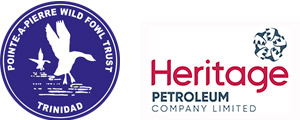Climate Change
Climate Change
Our atmosphere acts as transparent, protective covering around the earth. It lets in energy in the form of sunlight and retains heat. Concentrations of Carbon Dioxide in the atmosphere are increasing at a faster rate than in the past million years. Temperatures are rising; weather patterns are changing, putting our ecosystems and their species, and US, at risk.
Climate Change is affecting all countries but will be particularly felt in developing countries and small island states like Trinidad and Tobago and the rest of the Caribbean Islands. In fact, the Caribbean is considered to be one of the most vulnerable regions in the world to the impacts of Climate Change. Increase in the intensity and/ or frequency of extreme weather such as storms, high winds, hurricanes, floods, tornadoes, heat- waves and droughts will result in both, direct and indirect impacts on many aspects of human well-being.
There will be ecological, social and economic impacts as sea level rises causing destruction of coastal wetlands and ecosystems. Our continuing to burn fossil fuels and release vast quantities of carbon dioxide and other powerful Greenhouse gases into the atmosphere is the main cause. We humans are disturbing the balance.
Rainforests and Climate Change
The most vital role of Rainforests is their fight against Global Warming. These “Global Utilities” provide us with water, food, many medicines and our climate. Forests store vast amounts of carbon in their trunks, branches and leaves. When we destroy our forests we lose this natural balancing mechanism. Forests in Tobago and in the north of Trinidad and our coastal wetland forests on the east coast of Trinidad absorb the impact of storms and hurricanes and protect farmlands, agriculture, infrastructure and people. The destruction of our Rainforests will have the most damaging consequences.
Wetlands and Climate Change
Increases in sea surface temperature are resulting in coral bleaching and widespread mortality of corals. Without vibrant, thriving coral reefs, much of our fisheries will be lost. Our fisheries will be affected not only by the loss of coral reefs but also by changes in temperature.
As sea temperature increases, species will migrate to cooler waters outside the region. This will mean the destruction of our commercial fisheries. There will be increased pressure on our already stressed resources. Coastal communities will have to find alternative employment. Human populations will be impacted significantly by the loss of our coastal wetlands. The economic value ecosystem services provided by coral reefs in the Caribbean are estimated, at present, to be between US$1.5 and 3.00 billion per year.
As the ice caps melt littoral wetlands and mangroves will be affected negatively by sea-level rise. There will be tidal surges and coastal flooding that will damage dwellings and nearby agricultural fields.
Displacement of People and Climate Change
In the long term, Climate Change and Sea Level Rise, particularly around small island states, like Trinidad and Tobago and the Caribbean will cause displacement of people and could trigger regional conflicts. People will be driven from their homes, their land, and their jobs and will need help from larger, richer nations.
Adaptation does not mean passive avoidance or acceptance. Adaptation means knowing and anticipating the effects of Climate Change and taking action, now, to mitigate it.
SOLUTIONS WE MUST DO:
● Forest, watershed protection.
● Sustainable management of Natural Forest, monitoring, law enforcement.
● Finance reforestation.
● Land tenure reform; proper Land Use planning.
● Development/ production of agriculture, on “suitable” non-forested lands.
● Stop quick-fix short-term planning and include medium & long-term plans/ projects as well.
● Promote a culture of conservation & prevention in managing flood risks.
● Improve the way we use and manage our water supply now; it will help in the challenges of tomorrow.
● Plan wetland management. Prevent and/or reduce further loss or degradation of wetlands.
● Protect our Biodiversity: Identify vulnerable ecosystems & species
● Maintain & restore vegetation along riverbanks. Maintain & restore flood plains along rivers so that they can provide better protection against flooding.
● Finance alternative livelihoods.
● Invest in renewable & alternative energy.
● Construct buildings that will save energy, resist hurricanes, storms, floods and earthquakes.
● Promote green infrastructure.


